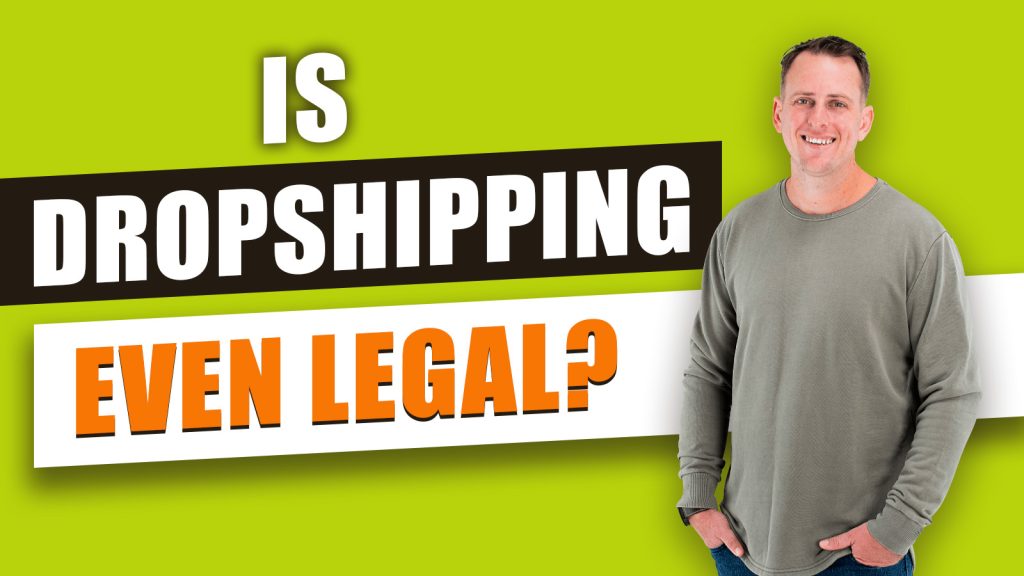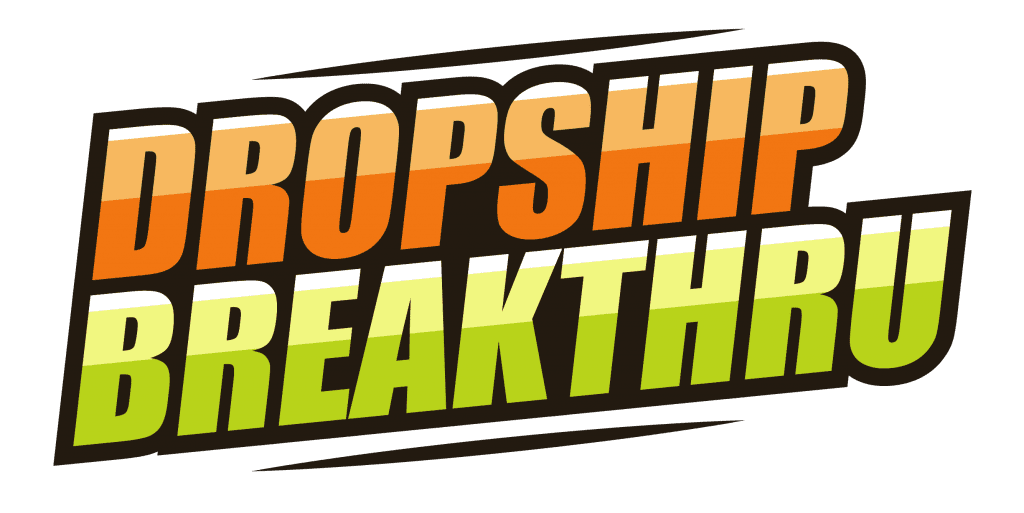The Legality of Dropshipping: Everything You Need to Know
DISCLAIMER: This post is meant to provide general information – not legal advice – to anyone wondering if dropshipping is a legitimate and legal business model. For the nitty-gritty details, you’ll want to talk to a legal professional who knows the laws and regulations regarding dropshipping in your part of the world.
We want to make it clear we’re not lawyers. We’re just a couple of guys sharing our experiences with dropshipping and our knowledge of how it works. Please don’t hold us or Dropship Breakthru responsible for how you use this info.
Alright, with that out of the way, let’s get to the point of why you’re here.
“Is dropshipping legal?”
We always get asked this question, so here’s what we know.

We’re assuming you already know what dropshipping is. But just in case, here’s a quick recap. Dropshipping is a business model where you sell products online without holding any inventory. Instead, you forward your customers’ orders to your supplier, who ships the product directly to your customer.
The products vary in price from a couple of bucks to thousands of dollars. Our businesses have focused on high ticket dropshipping products going for $800 or more.
If you want to start your own Ecommerce business, this is a fantastic and life-changing way to do it – with minimal risk and upfront investment. (We calculated, it’s less than $500. Not bad, huh?)
And now … to answer the burning question, “Is dropshipping legal?”
Yes, absolutely! Dropshipping is totally legal.
If you’re thinking about it as a new business or even a side hustle, don’t let legal worries scare you away. You just need to know the rules – like any other business.
Watch it on YouTube

Want to start your own high ticket dropshipping business?
Watch this FREE, on-demand training session that will uncover the exact steps you need to take to launch your first high ticket dropshipping business in the next 30 days.
Best Practices to Avoid Legal Headaches in Dropshipping
A great way to avoid legal hiccups is to sell high-quality, established products made in your own country.
This approach ensures products meet the necessary safety and quality standards and avoids navigating complex international regulations.
In contrast, low ticket dropshipping can be a minefield of trademark infringements and counterfeit goods.
We recommend prioritizing quality over quantity and building a reputable Ecommerce business.
Here are some pointers.
Getting a Resale Certificate
To get your dropshipping business off the ground in the US, you need:
- A resale certificate for your state
- An Employer Identification Number (EIN) if you plan to hire staff or open a business bank account
Make sure you do your homework on the rules in your area and double-check with a legal expert. Your local Small Business Administration (SBA) office can also be a great resource to ensure you cover all the bases.
Creating Terms & Conditions
Creating clear and comprehensive Terms & Conditions (T&Cs) from the outset will help you avoid potential headaches. Make sure to include these on your website and that they are easy to find.
When drafting your T&Cs, consider the customer’s purchasing journey so you cover all the critical information they need to know, like shipping times and return policies. You can base them on what your retailer says on their site to ensure everything lines up.
Describe Your Products Accurately
Making over-the-top and misleading claims about your products is illegal, so just don’t do it. It leads to unhappy customers and possibly legal trouble. So always describe your products accurately.
A great way to do this is to imagine you’re the customer. What kind of information would help you make a purchase? Size, colors, materials, unique features?
And, of course, make sure everything you say lines up with how the manufacturer describes the product.
Have a Clear and Efficient Return Policy
Dropshipping returns are inevitable – they come with the territory of any retail business. But with high ticket dropshipping, the rate of returns is lower because your customers tend to do more research and know what they want before they purchase.
When you do have products returned, make it as easy and pleasant as possible. Your customers will appreciate your honesty and willingness to make things right.
Handle Returns and Refunds Promptly
We can’t stress enough the importance of handling returns and refunds promptly. This tells your customers you’re committed to providing outstanding customer service and prioritizing their happiness.
Excellent customer service is the secret sauce to a successful Ecommerce business. Customers are more likely to purchase from you again and recommend you to friends.
Vetting Suppliers
If you properly vet your suppliers, you’ll avoid pitfalls like counterfeit items, inconsistent product quality, or shipping delays.
But if you’re following our tips on starting a high ticket dropshipping business, then you already know to look for well-known and established brands to work with (we teach you how to find them in our course).
Start by looking at their reviews, testimonials, and social media accounts to get a feel for their reputation. While you’re doing this, appraise their responsiveness, shipping methods, and level of customer service.
When you’re ready to discuss terms, here’s a great podcast episode to help you negotiate the best possible margins for your new business. Though, you only want to do this after you’ve established yourself as a solid seller of their products.
Fulfilling Orders and Handling Payments
When you accept a customer’s payment, place the order immediately with your supplier. Keep an eye on the entire process to ensure the product reaches the customer without a hitch, and keep them informed every step of the way.
For payments, we recommend Shopify, which handles this for you via Stripe whitelabeling.
Product Safety & Compliance
Prioritizing product safety is a legal obligation and reflects your professionalism. Non-compliant products can result in consumer complaints, negative reviews, or even costly fines. All of which will impact your business’s bottom line and reputation.
Take the time to research the safety regulations relevant to your products, and work closely with your suppliers to ensure they meet these standards.
Is Dropshipping Right for You?
Starting any Ecommerce business can be stressful. But as long as you follow the basic legal requirements and best practices outlined in this post (and get proper legal guidance), dropshipping is well worth it.
To recap:
- Make sure you fulfill your obligations when accepting payments
- Never make misleading claims about your product
- Avoid selling unauthorized items with trademarks or logos
- Always ensure your products meet local safety standards and regulations.
Watch this FREE, on-demand training session that covers the steps you need to take to launch your first high ticket dropshipping business in the next 30 days.



Want to start your own high ticket dropshipping business?
Watch this FREE, on-demand training session that will uncover the exact steps you need to take to launch your first high ticket dropshipping business in the next 30 days.

Article by Jon Warren
- Worked with 400+ Ecommerce business owners to help them grow their business
- Started 3 high-ticket dropshipping businesses that reached 7 figures per year in revenue
- Managed marketing for his and his clients’ businesses that has produced 117,000 high-ticket purchases for an estimated value of $120.5M
© Dropship Breakthru 2024

